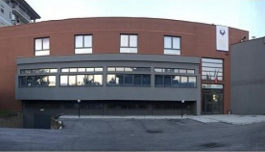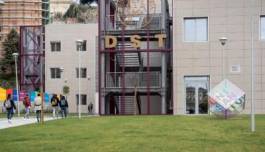The STAS Doctorate aims to train professionals with a complete mastery of the research method, the ability to work in multidisciplinary contexts and to communicate effectively with the scientific community and society. The STAS Doctorate offers a multidisciplinary path, with personalized paths to adapt to the different skills of the doctoral students. The wide distribution of entry degrees, which ranges from courses with a predominantly biological content to geology, chemistry and pharmacy, is consistent with the mission of the doctorate, which aims to create professional figures capable of working across disciplines in the field of the environment, health and mutual interactions.
To achieve these objectives, the STAS Doctorate is divided into various activities: research in the laboratory and/or in the field, use of technologically advanced tools and platforms, teaching organized into theoretical and theoretical-practical courses, seminars, workshops, conferences and participation in national conferences and international. The training project promotes a multidisciplinary, interdisciplinary and transdisciplinary approach to the study of the relationships between environment and health, a strategic sector for the future of the planet in an era in which man suffers the effects of the dynamics that he himself has generated, such as pollution and climate change. The STAS Doctorate aims to train highly professional figures capable of tackling and solving problems in an integrated way, such as environmental contaminants and health, interactions between genes and the environment, etc. At the same time, the STAS Doctorate offers the possibility of in-depth study in specialized areas such as biodiversity, environmental monitoring, sustainability, remediation, ecotoxicology, risk analysis, food resources and nutrition, molecular mechanisms involved in the genesis and pathogenesis of inflammation, degenerative neoplastic diseases and metabolic, microbiota and phytocompounds. This is achieved with the contribution of scholars in the field of Biological, Earth and Chemical Sciences, who are able to address how much and how environmental alterations can impact the biosphere and geosphere and, therefore, health and safety. A further objective of the STAS Doctorate is to obtain maximum interaction with the productive world, encouraging the involvement of businesses and companies, as well as local authorities and research centres, in the development of the training and research project. The program allows study periods at both national and international institutions and internships in public and private companies to facilitate entry into the world of work.
.Over the three years of the doctorate program, the activities integrate basic and specialist training, research training, and teaching training. At the beginning of the first year, the Teaching Body assigns to each doctoral student a tutor who supports him/her in the proposal and planning of the individual study plan and who assists him/her in defining the specific topic of doctoral thesis research. Overall, the activities can be divided into the following areas: a) carrying out a research project under the guidance of a supervisor; b) teaching and training activities complementary to the research activity, including transversal activities such as, for example, linguistic and IT improvement (mandatory activities). The teaching activity provided is distinct from that given in courses relating to first and second-level study courses and is functional to the research activities foreseen in the doctoral course. The training is integrated by participation in conferences and internships in international research centres at the suggestion of the tutor. Doctoral students are required to spend a period of study and research abroad for a minimum duration of six months. In this way, doctoral students will be able to manage international projects, collaborate in diversified teams and clearly communicate their research results.
The STAS Doctorate aims to train professionals with a complete mastery of the research method, the ability to work in multidisciplinary contexts and to communicate effectively with the scientific community and society. The STAS Doctorate offers a multidisciplinary path, with personalized paths to adapt to the different skills of the doctoral students. The wide distribution of entry degrees, which ranges from courses with a predominantly biological content to geology, chemistry and pharmacy, is consistent with the mission of the doctorate, which aims to create professional figures capable of working across disciplines in the field of the environment, health and mutual interactions.
To achieve these objectives, the STAS Doctorate is divided into various activities: research in the laboratory and/or in the field, use of technologically advanced tools and platforms, teaching organized into theoretical and theoretical-practical courses, seminars, workshops, conferences and participation in national conferences and international. The training project promotes a multidisciplinary, interdisciplinary and transdisciplinary approach to the study of the relationships between environment and health, a strategic sector for the future of the planet in an era in which man suffers the effects of the dynamics that he himself has generated, such as pollution and climate change. The STAS Doctorate aims to train highly professional figures capable of tackling and solving problems in an integrated way, such as environmental contaminants and health, interactions between genes and the environment, etc. At the same time, the STAS Doctorate offers the possibility of in-depth study in specialized areas such as biodiversity, environmental monitoring, sustainability, remediation, ecotoxicology, risk analysis, food resources and nutrition, molecular mechanisms involved in the genesis and pathogenesis of inflammation, degenerative neoplastic diseases and metabolic, microbiota and phytocompounds. This is achieved with the contribution of scholars in the field of Biological, Earth and Chemical Sciences, who are able to address how much and how environmental alterations can impact the biosphere and geosphere and, therefore, health and safety. A further objective of the STAS Doctorate is to obtain maximum interaction with the productive world, encouraging the involvement of businesses and companies, as well as local authorities and research centres, in the development of the training and research project. The program allows study periods at both national and international institutions and internships in public and private companies to facilitate entry into the world of work.
Over the three years of the doctorate program, the activities integrate basic and specialist training, research training, and teaching training. At the beginning of the first year, the Teaching Body assigns to each doctoral student a tutor who supports him/her in the proposal and planning of the individual study plan and who assists him/her in defining the specific topic of doctoral thesis research. Overall, the activities can be divided into the following areas: a) carrying out a research project under the guidance of a supervisor; b) teaching and training activities complementary to the research activity, including transversal activities such as, for example, linguistic and IT improvement (mandatory activities). The teaching activity provided is distinct from that given in courses relating to first and second-level study courses and is functional to the research activities foreseen in the doctoral course. The training is integrated by participation in conferences and internships in international research centres at the suggestion of the tutor. Doctoral students are required to spend a period of study and research abroad for a minimum duration of six months. In this way, doctoral students will be able to manage international projects, collaborate in diversified teams and clearly communicate their research results.





